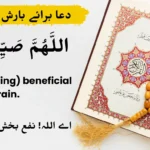The phrase Kullu Nafsin Zaikatul Maut (Every soul shall taste death) is a profound verse from the Quran that serves as a reminder of life’s impermanence and the inevitability of death. This verse carries a powerful message about the reality of human existence and the importance of preparing for the Hereafter. It has inspired countless reflections among Muslims and is often quoted to remind believers about accountability and the final return to Allah.
| Summun Bukmun Umyun Fahum Layarjiun |
| Bismillahi Tawakkaltu Alallah Dua with Meaning |
| Hasbi Allah dua | Allah Is Sufficient For Me |
| Read Kabristan Mein Dakhil Hone ki Dua in Urdu |
The Full Verse and Its Context
Arabic Text
كُلُّ نَفْسٍ ذَائِقَةُ الْمَوْتِ ۗ ثُمَّ إِلَيْنَا تُرْجَعُونَ
Transliteration
Kullu Nafsin Zaikatul Maut, Thumma Ilayna Turja’oon.
English Translation
“Every soul shall taste death. Then to Us, you will be returned.”
Urdu Translation
ہر جان کو موت کا ذائقہ چکھنا ہے، پھر تم سب ہماری طرف لوٹائے جاؤ گے۔
This verse is part of multiple chapters in the Quran, emphasizing its universal relevance. It appears in Surah Al-Ankabut (29:57), Surah Aal-e-Imran (3:185), and Surah Al-Anbiya (21:35), often followed by mentions of the Hereafter, reward, and accountability.
Understanding the Meaning of “kullu nafsin zaikatul maut”
1. Certainty of Death
The phrase asserts the inevitability of death for all living beings. This truth applies universally, regardless of status, wealth, or power.
- Key Reflection: Life is temporary, and our deeds determine our eternal abode.
- Related Verse: “Wherever you may be, death will overtake you, even if you are in lofty towers.” (Surah An-Nisa, 4:78)
2. The Test of Life
Life is a test, and death marks the conclusion of this test. What follows is accountability before Allah.
- Key Reflection: Strive for good deeds and seek Allah’s forgiveness.
- Related Verse: “He who created death and life to test you as to which of you is best in deed.” (Surah Al-Mulk, 67:2)
3. Return to Allah
The verse concludes with a reminder of the ultimate return to Allah, highlighting the need to prepare for the Hereafter.
- Key Reflection: The concept of accountability encourages mindfulness in daily actions and devotion to Allah.
- Related Verse: “To Him you shall all return.” (Surah Al-Baqarah, 2:285)
The Relevance of This Verse in Daily Life
1. Strength in Times of Loss
- This verse is often recited when mourning a loved one, reminding Muslims that death is a natural part of life and a transition to the eternal world.
- It provides solace and acceptance, anchoring grief in faith.
2. Motivation for Righteousness
- Reflecting on mortality motivates believers to prioritize good deeds and seek Allah’s pleasure over worldly distractions.
- It emphasizes qualities like humility, gratitude, and sincerity.
3. Perspective on Life’s Challenges
- The verse teaches patience and reliance on Allah during trials, as worldly difficulties are temporary compared to the eternal Hereafter.
How to Live by the Message of كُلُّ نَفْسٍ ذَائِقَةُ الْمَوْتِ
- Repentance: Regularly seek forgiveness for sins and shortcomings.
- Charity: Engage in acts of kindness and charity, which benefit both the giver and society.
- Reflection: Contemplate the impermanence of life and realign priorities accordingly.
- Worship: Strengthen the connection with Allah through prayers, Quran recitation, and supplication.
Duas for Remembering Death
1. Seeking a Good End
Arabic: اللَّهُمَّ اخْتِمْ لَنَا بِحُسْنِ الْخَاتِمَةِ
Transliteration: Allahumma Akhtim Lana Bi-Husnil Khatimah.
Translation: “O Allah, grant us a good end.”
2. Protection from the Grave’s Punishment
Arabic: اللَّهُمَّ إِنِّي أَعُوذُ بِكَ مِنْ عَذَابِ الْقَبْرِ
Transliteration: Allahumma Inni A’udhu Bika Min ‘Adhabil Qabr.
Translation: “O Allah, I seek refuge in You from the punishment of the grave.”
3. Dua for Accountability
Arabic: اللَّهُمَّ حَاسِبْنِي حِسَابًا يَسِيرًا
Transliteration: Allahumma Hasibni Hisaban Yasiran.
Translation: “O Allah, make my reckoning easy.”
Conclusion
“Kullu Nafsin Zaikatul Maut” is not just a statement of fact but a profound reminder of life’s purpose and the eternal journey ahead. By reflecting on this verse, Muslims are encouraged to live with mindfulness, prepare for the Hereafter, and draw closer to Allah through acts of worship and good deeds. Life is fleeting, and this verse invites us to make the most of it by striving for righteousness.
FAQs:
It means “Every soul shall taste death.” This Quranic phrase reminds Muslims of life’s impermanence and the inevitability of death.
One can prepare by performing righteous deeds, seeking forgiveness, offering prayers, engaging in charity, and living in accordance with Islamic teachings.
Reflecting on death helps Muslims prioritize the Hereafter over worldly distractions, encourages humility, and fosters accountability for their actions.




